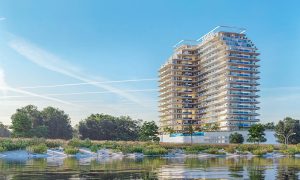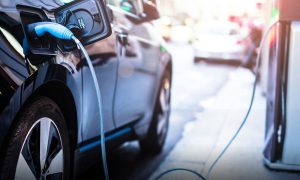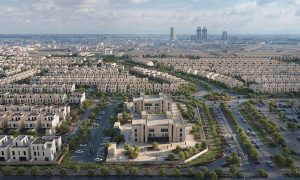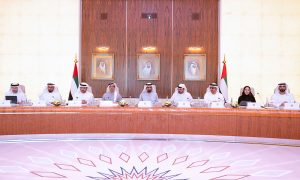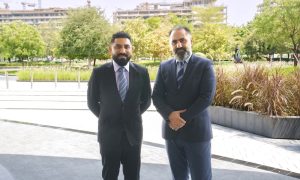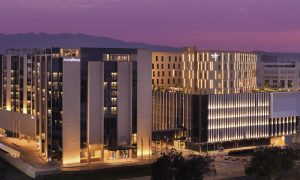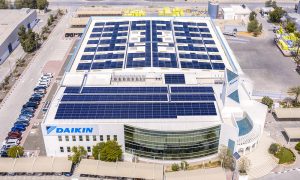Top Five Causes of Fire in Buildings
Snag and Inspect, a Dubai based inspection firm, explains the five main causes of fire in a building

RELATED ARTICLES: Qatar sentences 5 to six years in prison over Villagio fire | A Need for Alarm | Emaar Fire Safety chief calls for better education
Dubai based inspection firm, Snag and Inspect, have released the findings of a study that have highlighted the five most common causes of fire hazards in buildings.
Done in conjunction with the Civil Defence, the study found that there are a number of reasons fires start in buildings, ranging from shortages in electrical circuits, to an illegally placed gas cylinder. Furthermore, a fire can spread rapidly because of flammable cladding, or a lack of fire retardant blockages.
All these mooted scenarios have been directly linked to construction issues, Snag and Inspect experts have said. As such, they have released a list of the five most common causes of fires to Emirates 24/7, and explained what can be done to prevent them.
- Passive Fire Protection:
Correctly built and sealed compartment walls, correctly fitted fire doors, correctly sealed pipes and ducting when these are taken through a compartment wall, correctly sealed edges of each floor slab where it joins the façade; these are called passive fire protection measures.
“Passive fire protection measures are designed to slow down the spread of a fire by creating fire-resistive compartments within the building. So each apartment is designed as a compartment, the lift lobbies are each designed as compartments, each retail unit is designed as a compartment etc etc,” explains David O’Riley, marketing director, Snag & Inspect.
“To make sure that these compartments actually do delay the spread of a fire should one occur there are regulations governing their design? Historically there has been a significant lack of compliance with these regulations, which has resulted in some Civil Defence authorities making this a major priority.”
- Fire Sprinkler Systems
“Civil Defence Authorities notably Dubai has required the installation of sprinkler systems in all residential and commercial towers for many years, but for whatever the reason we frequently find that these systems have not been correctly commissioned after installation, and it is rare to find one that is being maintained to an internationally recognised standard.”
This message of Snag & Inspect is alarming bearing in mind that a correctly working sprinkler system has proven to save lives. “It is a matter of fact that not one person has lost their life to fire in building where sprinklers were installed and worked correctly in the 100 years or so since they were invented,” adds David.
However, if not correctly commissioned and not regularly maintained, the sprinkler system will simply stop working after some time, a situation not uncommon in the UAE.
“Too many building owners appear to be of the belief that sprinkler systems do not require any maintenance, indeed I have talked to Facilities Management companies who do not fully understand the importance of correct sprinkler system maintenance,” commented O’Reily.
- Fire Alarm Systems
The fitting of fire alarms is mandatory in every building in the UAE. There are regulations governing their installation, commissioning and maintenance. However, these systems are simply not installed as required by the regulations, said O’Reily.
“This makes the commissioning process extremely difficult; it either does not get done at all or the process cannot be completed.
“Part of the problem is incorrect wiring of fire alarms,” David explains. “That is why they are difficult to commission. Very often someone in the building will switch off the fire alarm system or mute the alarm because ‘it is always going off for no reason’, disturbing everyone in the building and creating false alarm call-outs for the Civil Defence.”
“If it is not working properly and it is being ignored by the occupants, what purpose does it serve?”
- Electrical Wiring
“Most wiring is of a reasonable standard but contractors consistently ignore the regulations when it comes to electrical connectors,” said David.
Plastic electrical connectors are banned in the UAE, because of their vulnerability to catching flame. Once an electrical-circuit occurs, these blocks could easily catch fire and set aflame the surrounding area.
“For some reason electricians believe that it is okay to use unprotected non fire-retardant plastic connector blocks when the code quite clearly calls for enclosed fire retardant junction boxes. The plastic connectors are banned for safety reasons,” says David.
Certainly in the UK the use of LPG cylinders in a residential property has been banned for many, many years, if gas cylinders are a needed they must be securely located outside, indeed in some areas of the UK the use of LPG or ‘Mains’ gas in a tower-block is banned completely. The introduction of sensible restrictions on the installation of LPG in towers and villas as described in the UAE Fire & Life Safety Code is a most welcome measure.
- Liquefied Petroleum Gas (LPG) Installations
Civil Defence has actively campaigned to make residents aware of the importance of the proper installation of liquefied petroleum gas (LPG).Restrictions on the instalments have been put in place. However, according to David fire hazards related to this item still exist.
“LPG is a dangerous substance and should be treated with extreme caution. An explosion or fire in one apartment can affect the lives of many families. So why do we still see new installations that have no gas detection system and automatic cut-off valve?”
“Why do we still see new buildings being constructed where each apartment is required to have its own LPG cylinder, in a kitchen cabinet with no protection at all for the occupants? This is a violation of the UAE Fire & Life Safety Code and should be reported to the Civil Defence without delay,” said a frustrated David.
“Irrespective of any permissions already granted, contractors and developers have a moral obligation not to build properties that require gas cylinders in every apartment. To continue to do so puts profit before safety, greed before people’s lives! It is unacceptable in the modern world and it is against the requirements of the UAE Fire & Life Safety Code.”
Major Jamal, director of Preventive Safety at Civil Defence agreed that the issues pointed out by Snag and Inspect are a major cause of fire incidents in buildings, all across the UAE.
“We have put too much trust in some contractors, who presented a plan and did not always deliver that plan,” he told Emirates 24/7.
“Cheap labour is another aspect of this. The contractor employs cheap labourers from abroad. But the labour force that is employed is usually not adequately equipped to do the job. There is a great lack of education among those involved,” he warned.
Carrying out frequent inspections has shown results, said Jamal. However, he added that Civil Defence inspection resources are severly limited, with only eight inspectors conducting daily site inspections, and a lot of sites to inspect.
When violations are identified fines up to Dh50, 000 could be handed out and contractors warned that if the violations continue, they could lose their Civil Defence license.
This relates to work under construction, and as such 190 fines were handed out by Civil Defence in 2012.
However, when it comes to existing buildings, it is more complicated. Violations cannot always be corrected so there should be an agreement to do what is practically possible, explained Jamal.







